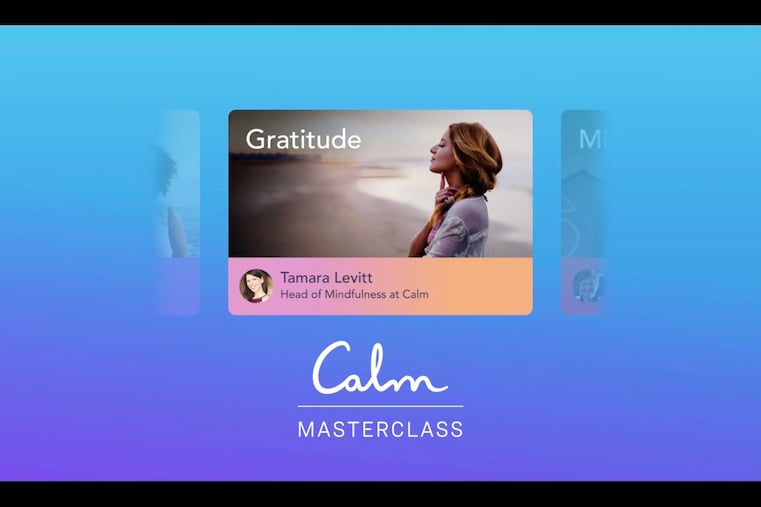If you’ve been told lately that using GIFs is totally cringe, you might have a Gen Z co-worker.
Generation Z, or individuals born between 1997 and 2012, currently represents 30% of the world’s population and is estimated to make up 27% of the workforce by 2025. Their wants, needs, and preferences will become increasingly important for employers.
And Gen Z has its own set of priorities: It’s a generation that places importance and value on ethics, morals, and passions.
The Hustle surveyed 160 Gen Zers to understand what they’re looking for from an employer and what they want to accomplish in their careers:

What does Gen Z want in the workplace?
The newest generation of workers wants a workplace that aligns with their values and ethics on a deeper level. While past generations prioritized short commutes or brand-name employers, today’s workers want to work for companies that reflect who they are as people.
“Gen Z[ers] these days are more purpose driven and tend to seek work that is more aligned with their values,” says Cheryl Tan, a Gen Z professional who works in tech.
Meagan Loyst, founder and CEO of Gen Z VCs, says that Gen Z workers not only look for values-driven companies, but also places in which they can be a part of the mission and vision in a more meaningful way.
“Something Gen Zers look for is the impact they can have in an organization,” she says. “They want to know how a company, organization, or management team will flex their beliefs, bring them into the fold, and make them feel heard.”
While having agency in the workplace is vital, Gen Z employees look for a range of attributes when it comes to selecting the right position.
Workplace characteristics that Gen Z values
According to The Hustle’s survey, Gen Z is a generation that wants it all: 30% of respondents said high pay was the most important to them, nearly tied with 29% who said work-life balance was their priority. 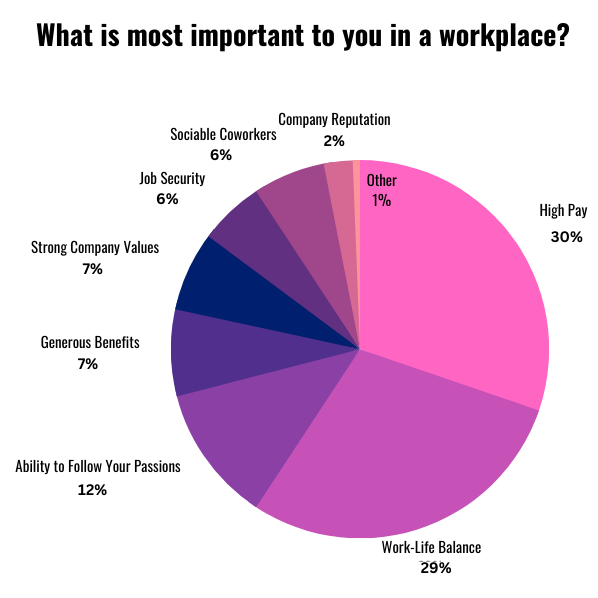
“Salary is a big consideration, if not the biggest,” says Loyst. Gen Z in particular prioritizes salary as they are entering the workforce and a first-time salary can set the bar for an entire career.
And work-life balance taking priority for nearly a third of respondents is in line with a generation entering the workforce in a post-pandemic world.
“The way our generation was brought into the workforce was very different from prior generations,” says Loyst. “Flexible, remote work is our norm. I can’t imagine going back to an office for five days every week.”
The third most-desired workplace characteristic was the ability to follow one’s passions, followed by strong company values/ethics.
Generational differences in the workplace
Gen Z is more racially and ethnically diverse, and more educated, than previous generations. Those shifting demographics mean it is a cohort concerned with diversity, equity, and inclusion. And they are likely climbing the ranks in corporate America following higher education experiences.
While Gen Z and their closest counterparts, millennials, share many of the same values, older generations like the Gen X and Baby Boomers have grown up in a workforce with fewer career advancement opportunities. Therefore, they are less likely to leave their current companies in search of advancement.
When asked about their ultimate career goals — 37% of The Hustle’s respondents said building personal wealth is their ultimate career goal, while 21% said changing the world/making a difference is at the top of their list.
Enjoying time outside of work comes in third — further illustrating a generation that values building full and healthy lives outside of their careers.
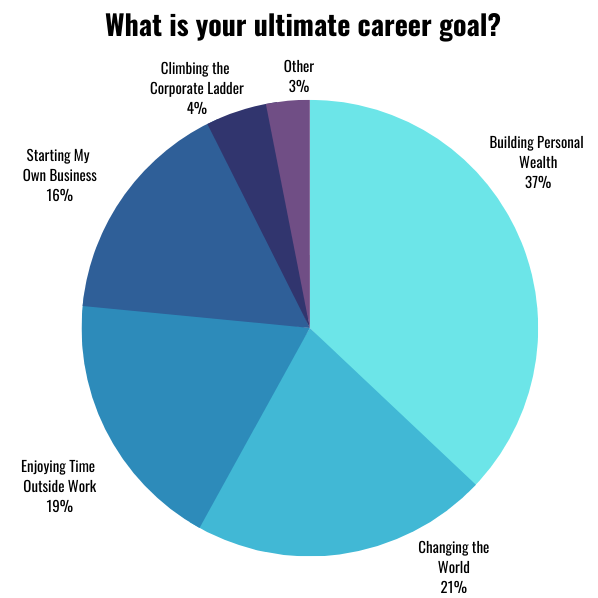
Gen Zs have higher expectations of employers when it comes to the issues they care about (whether it’s the environment, diversity and inclusion, women’s rights, or something else).
“The bar is raised in terms of what ethics look like today, “ says Loyst. “You no longer get bonus points for being a diverse company; it’s just something younger people expect.”
She notes that Gen Zers will look at things that might not be listed on a company’s website, such as how management treats working mothers around maternity leave, for example.
And companies need to be genuine when making claims about business culture and ethics: “Gen Z has a high BS barometer,” she says.
Gen Z work-life balance
When asked how important work-life balance is, 54% of The Hustle’s respondents rated work-life balance as being extremely important, while 29% said it’s important (followed by 15% saying somewhat important and 2% saying not very).
To retain Gen Z talent, employers should prioritize achieving work-life balance. This could take the form of no internal meetings on Fridays, policies that restrict work correspondence on evenings and weekends, generous vacation policies, or mandated company closure days.
Offering hybrid work or fully remote options is another way to please many of the Gen Zers looking for work-life balance.
Managing Gen Z in the workplace
Gen Z has high expectations for their managers. Instead of having a boss that merely hands them projects, Gen Z wants managers to double as mentors and help shape their careers.
In the survey, 43% of respondents said the most important quality in a manager is one who can offer mentorship. Empathetic managers and those who are good at their jobs followed with 22% and 27%, respectively.
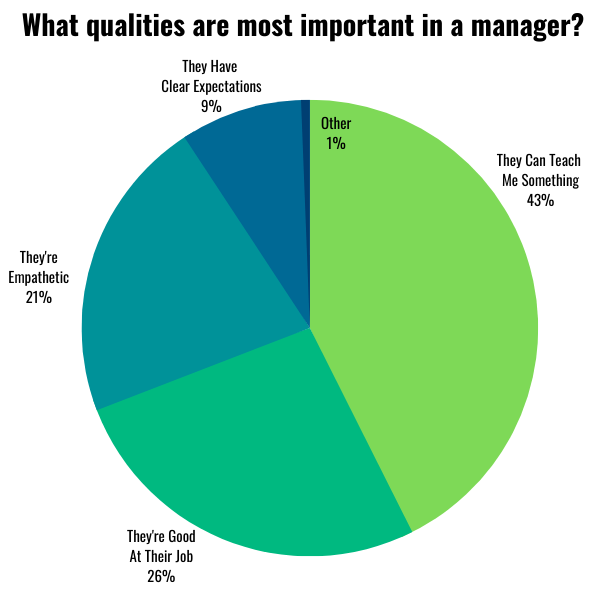
Looking for mentorship rather than simple management reflects Gen Zers’ desire to be seen holistically. Companies should engage their youngest workers by implementing mentorship programming.
This could include formal mentorship programs where higher-level and entry-level employees pair up for one-on-one meetings, or by instilling the importance of mentorship in managers.
Managers should bake mentorship into their relationships with their direct reports. Talking about career development and goals — and sharing thoughts and steps on how to achieve them — will help Gen Z employees feel more fulfilled.
“Having a manager that really understands me and wants to develop me as a whole person versus who I am from 9 to 5 is really important,” says Loyst. “A lot of young people are building personal brands and putting themselves out there in a very different way than what was possible 10 years ago.”
Along with wanting to invest in themselves, Gen Zers want to bring their personality traits to work and still be given trust and opportunities.
“It’s important that Gen Zers can show up as their authentic self and feel empowered to do their work,” says Tan. “That means an element of trust from their managers to not micromanage and to recognize them for the work they do.”
How will Gen Z affect the workplace?
One thing is certain about Gen Z: It’s a generation that will bring change into the workplace, much of which will be positive and impactful.
Survey respondents, when asked how they hope to change their workplace, had answers such as: “To make it a more functional, happy place,” “Be an inspiring person in the world and set good examples,” and “I want to increase diversity.”
As employers compete to attract young workers, it will become increasingly important to make sure that the workplace is a healthy, safe, and enjoyable place to be.
This might look like introducing mental health programming and days of rest, increasing inclusive parental leave, or implementing new diversity and inclusion practices.
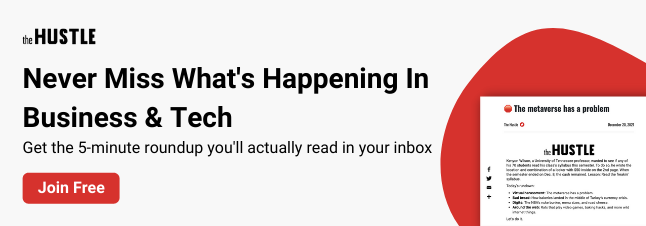



![5 Steps to Create an Outstanding Marketing Plan [Free Templates]](https://blog.hubspot.com/hubfs/marketingplan_20.webp)

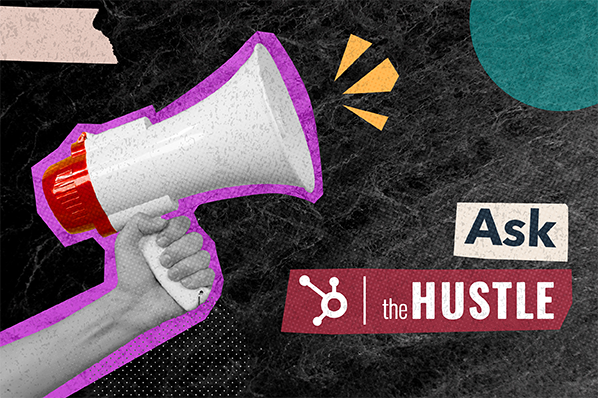


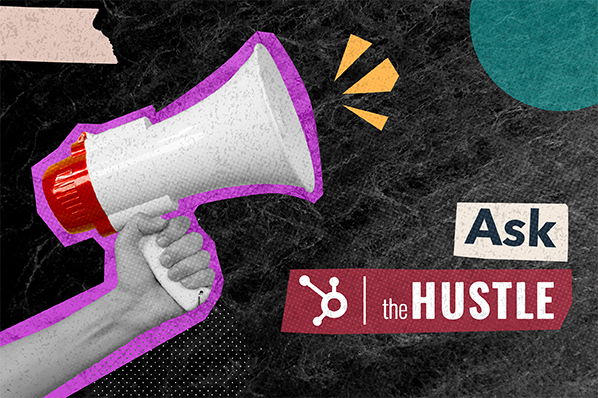
![8 of the Best Professional Bio Examples We've Ever Seen [+ Bio Templates]](https://blog.hubspot.com/hubfs/professional-bio-examples-2.jpg)
